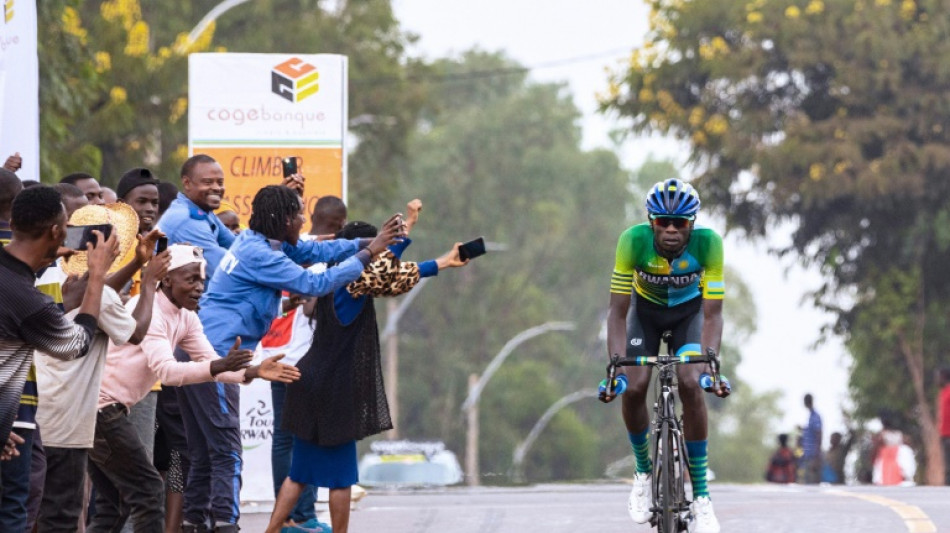
RBGPF
0.0800


Jean Bosco Nsengimana spent his teens working as a bike courier to take care of his struggling family, never imagining that he would one day win the Tour du Rwanda.
He dropped out of primary school as a little boy when his father died and soon took up any jobs he could find to make ends meet and support his mother and two younger siblings.
Every day was a hustle, the 30-year-old told AFP.
But as he pedalled his way across his hometown of Musanze in hilly northwestern Rwanda, a dream slowly began to take shape.
"Our home was by the roadside and I used to see pro cyclists and admire them," he said.
In 2010, he modified his large bicycle -- meant to ferry goods and passengers -- and started training in the hope of securing a spot on the Rwandan team participating in the Tour du Rwanda.
A few months later, he approached the team's coach Felix Sempoma, who rejected him instantly, saying he was too skinny to pursue a career in cycling.
Nsengimana was undeterred.
"I rejected him again and again but he was insistent every time that he wanted me to test him and see," Sempoma told AFP.
"I honestly did not think he had what it takes, but his passion is what made me give in."
He joined the team in 2011 and finished in sixth place.
Four years later, he won the tour.
"Cycling made me very happy," he said.
"I got married, built a new house for my mother and for myself."
He also began appearing in adverts and used the funds to open a small shop, which his wife runs.
The father of two has since become a permanent fixture in the competition and his story has motivated other young men from poor families to try and break into the world of professional cycling.
"He... is someone that all the younger cyclists look up to. It is not easy winning the Tour du Rwanda and he has done it. We are all proud of him," said Sempoma.
- 'No regrets' -
Launched in 1988, the Tour du Rwanda is known for its challenging terrain and scenic routes that showcase the Great Lakes nation's stunning landscape.
Over the years, the annual event has grown to attract top international riders and helped to raise the profile of cycling in Rwanda.
This year's race, which featured British cycling great and four-time Tour de France champion Chris Froome, was won by Eritrean Henok Mulueberhanwho covered a distance of 1,130 kilometres in 28 hours 58 minutes and one second.
Despite its expanding popularity, cycling in Rwanda still faces significant challenges, including a lack of infrastructure and limited access to high-quality equipment and training facilities.
"International cyclists have better training facilities and more tournaments to compete in than us," Nsengimana lamented.
"We have only one tournament every month here in Rwanda, but we need more tournaments... so that we can reach the level of those other international cyclists."
This year, no Rwandan riders made it to the top 10, and Nsengimana finished in 40th place.
The cyclist, who has also participated in continental competitions in Algeria, Cameroon and Eritrea, recognises that his best sporting years are now behind him.
"I have no regrets. I have had a spectacular career, and now I can go on to be a coach for younger players," he said.
He has plenty of advice to offer, he pointed out.
"You do not join cycling while focusing on money," he said, urging younger riders "to be patient".
"First is to love the job you are doing; the rest comes later."
T.Maeda--JT